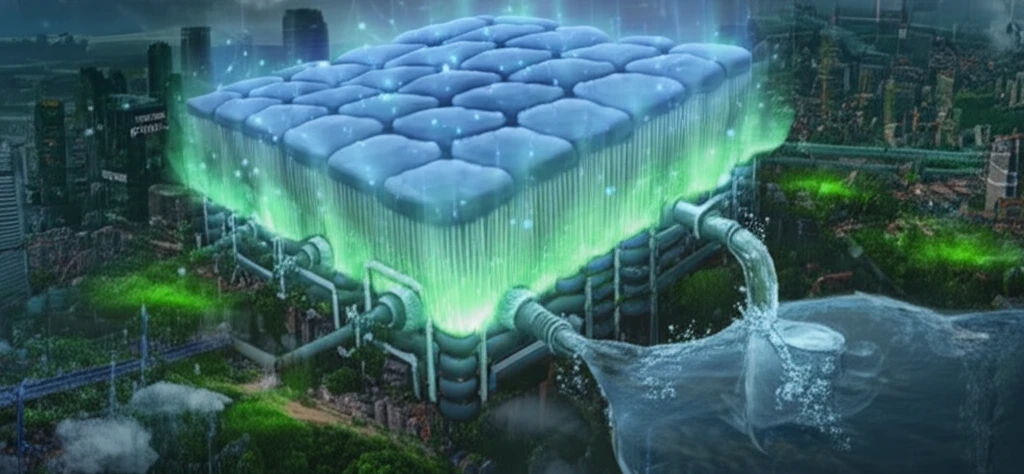
Membrane Technology: A Deep Dive into Water Purification and Separation
"Explore how membrane technology is revolutionizing water treatment, from removing pollutants to creating new materials. Is it the solution to our water challenges?"
In an era defined by increasing environmental consciousness and pressing resource scarcity, membrane technology emerges as a critical field. It's not just about filtering water; it's about a fundamental shift in how we approach separation and purification processes across industries. From ensuring access to clean drinking water to revolutionizing chemical manufacturing, membranes are at the forefront of innovation.
But what exactly is membrane technology? At its core, it involves using a semi-permeable barrier to selectively separate components from a mixture. This process, driven by pressure, concentration, or electrical potential, allows specific substances to pass through while retaining others. The beauty lies in its simplicity, energy efficiency, and adaptability to various applications.
This article dives deep into the world of membrane technology, exploring its diverse applications, underlying principles, and the cutting-edge research that promises to shape its future. We'll focus particularly on water purification, highlighting the most important aspects for a general audience and delving into the latest research.
Why Membrane Technology Matters: Cleaning Water and More

Membrane technology offers a powerful alternative to traditional separation methods, offering several advantages: energy efficiency, less waste, and the ability to handle complex mixtures. In the realm of water purification, this translates to lower operating costs and a smaller environmental footprint.
- Chemical Industry: Separating valuable products and recovering catalysts.
- Food and Beverage: Concentrating juices, clarifying wines, and purifying ingredients.
- Pharmaceuticals: Isolating and purifying life-saving drugs.
- Energy: Separating gases for various applications, including carbon capture.
The Future of Membranes: Cleaner, More Efficient, and Everywhere
As research continues and new materials emerge, the future of membrane technology looks incredibly bright. We can anticipate even more energy-efficient water purification, more effective separation of valuable resources, and innovative applications we haven't even imagined yet. From addressing global water challenges to driving innovation across industries, membrane technology is poised to make a significant impact on our world.
